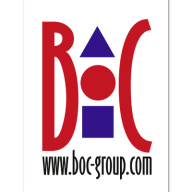

Appian and ADONIS are competing products in the business process management sector, each offering unique advantages. Despite Appian's strong points, ADONIS presents a more substantial offering with its comprehensive feature set.
Features: Appian highlights a low-code platform, facilitating rapid development and integration to streamline processes efficiently. It also offers robust process design and deployment, enabling easy configuration and adaptations. ADONIS is noted for its detailed process modeling and analysis tools, enriching the user experience with a focus on optimization and process refinement. Its pure modeling capabilities, drag-and-drop elements, and simulation models provide excellent insights and user-friendliness.
Room for Improvement: Appian could enhance its mobile responsiveness and expand integration capabilities to include even more external systems. Advancements in user training and customization flexibility might also add value. ADONIS could improve its cloud-based offerings, address the complexity of certain features to aid novice users, and work on enhancing real-time analytics for even greater efficiency in decision-making processes.
Ease of Deployment and Customer Service: Appian offers cloud-based deployment, simplifying the initial setup, and provides responsive customer support, ensuring quick resolutions. ADONIS provides both on-premise and cloud options, offering broader deployment flexibility with strong customer service that caters to diverse client needs effectively.
Pricing and ROI: Appian typically incurs a higher initial setup cost, which may strain budgets; however, its customization strengths often justify the expenditure through a competitive ROI. ADONIS presents a cost-effective setup, providing a balanced cost-to-feature richness ratio, thus allowing an appealing ROI given its comprehensive feature offering.


ADONIS BPM suite is users' best-rated tool for process management, analysis and optimization, trusted by SMEs and large corporations worldwide. It helps you transform your business and create competitive advantage by streamlining processes, enhancing operational efficiency, boosting transparency and creating a customer-centric organization. You can start creating your digital twin with ADONIS already today, as the cloud-based ADONIS:Community Edition is available for free. For more information please visit www.boc-group.com/en/adonis/.
Appian is a unified low-code platform and solution used by businesses to build enterprise applications and workflows. This product adapts to the needs of clients and the technologies they are already using to combine their data in a single workflow and maximize resources. The platform has four main components through which it transforms the work process for companies of various sizes. They are:
Appian is utilized across a diverse set of industries, including automotive and manufacturing, energy and utilities, education, financial services, telecom and media, transportation, retail, insurance, healthcare, and life sciences. The most frequent use cases of Appian are customer journey, governance, risk and compliance, operational efficiency, supply chain, distributed order management, and environmental, social, and governance (ESG) management.
Appian Features
Appian has various features that allow users to create solutions for their businesses. These features can be separated into a few groups according to function, including automation, low-code application development, and integrations and data. Some of the most frequently used features of Appian include:
Appian Benefits
The benefits of using Appian include:
Reviews from Real Users
A practice leader - digital process automation at a computer software company values Appian highly because the product is easy to develop, low-code, and has a good user interface.
Alan G., an advisory board member at Codecon VR, Appian offers a clear application life cycle, easy to learn documentation, and comes with a fundamentals course.
We monitor all Business Process Management (BPM) reviews to prevent fraudulent reviews and keep review quality high. We do not post reviews by company employees or direct competitors. We validate each review for authenticity via cross-reference with LinkedIn, and personal follow-up with the reviewer when necessary.